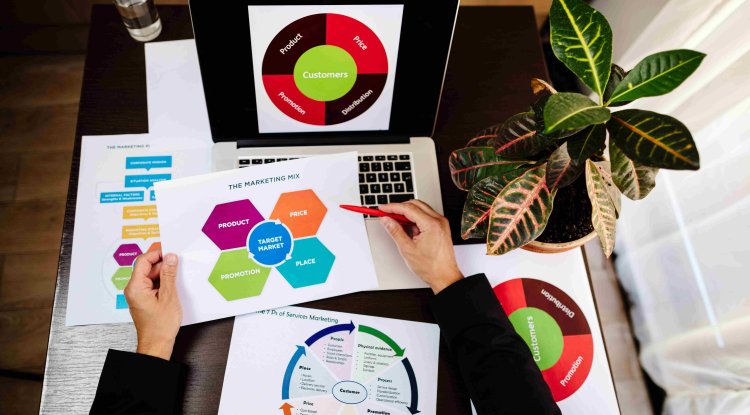Maximizing ROI from Marketing Automation: Metrics and Measurement
Discover how to maximize Return on Investment (ROI) from marketing automation by effectively measuring key metrics. Learn how data-driven insights and careful analysis can improve marketing campaigns and drive better results. Read the article now!

In today's competitive digital landscape, businesses are continuously seeking ways to optimize their marketing efforts and achieve better results. One powerful tool that has revolutionized the marketing landscape is marketing automation. By automating repetitive tasks, streamlining workflows, and delivering personalized messages to target audiences, marketing automation helps businesses enhance their efficiency and reach.
However, implementing marketing automation is just the beginning; the real value lies in measuring its effectiveness and maximizing Return on Investment (ROI). In this article, we will delve into the essential metrics to consider when assessing the impact of marketing automation on your business, and how data-driven insights can drive better decision-making.
Understanding Key Metrics
-
Lead Generation: One of the primary benefits of marketing automation is its ability to generate leads efficiently. Measure the number of leads generated through automated campaigns and assess the quality of these leads.
-
Conversion Rates: Track the conversion rates of leads into customers attributed to marketing automation efforts. Analyze how automation impacts the overall conversion funnel and identify areas for improvement.
-
Customer Acquisition Cost (CAC): Calculate the cost incurred to acquire a customer through marketing automation. Compare this cost with other marketing channels to determine the most cost-effective strategies.
-
Customer Lifetime Value (CLV): Assess the value that marketing automation brings to your business by calculating the lifetime value of customers acquired through these efforts. High CLV indicates effective marketing automation.
-
Email Performance: Measure email open rates, click-through rates, and bounce rates to gauge the success of email campaigns delivered through automation. Optimize email content and targeting based on performance.
Case Study: Driving Success with Marketing Automation
As an example, let's consider a case study of a retail company that implemented marketing automation to boost customer engagement and sales. By automating personalized email campaigns based on customer behavior and preferences, the company aimed to increase customer loyalty and purchase frequency.
After implementing marketing automation, the company witnessed a significant rise in email open rates, indicating improved customer engagement. The carefully tailored product recommendations led to a 30% increase in conversion rates, resulting in higher revenue per email campaign. Moreover, the automated follow-up emails led to a 20% decrease in cart abandonment, driving additional sales.
By tracking these metrics and analyzing the data collected, the company could continually fine-tune its automation strategies, resulting in sustained growth and a remarkable increase in ROI.
Data-Driven Decision Making
Data is the foundation of effective marketing automation. By leveraging the power of data-driven insights, businesses can identify areas for improvement, optimize campaigns, and align marketing efforts with business objectives.
-
A/B Testing: Use A/B testing to compare the performance of different elements within your automation campaigns. Test variations of subject lines, call-to-action buttons, and email content to identify the most effective combinations.
-
Segmentation: Segment your audience based on behavior, demographics, or preferences. Tailor personalized messages to each segment to enhance engagement and conversion rates.
-
Marketing Attribution: Use marketing attribution models to attribute revenue and conversions to specific marketing efforts. Understand which automation campaigns contribute most to your bottom line.
About Myself
I am Raghav Chugh, a highly skilled digital marketing and technology professional. With three Marketo Certified Expert (MCE) certifications and 8+ years of experience in campaigns planning and execution, I possess in-depth expertise in marketing automation and customization. My technical prowess extends to various tools and platforms, enabling me to deliver exceptional results in any technical environment.
Conclusion:
Maximizing ROI from marketing automation requires a strategic approach, careful analysis of metrics, and data-driven decision-making. By leveraging key metrics and data-driven insights, businesses can continuously refine their automation efforts to achieve remarkable results. Embrace marketing automation as a powerful tool and harness its potential to drive growth and success for your business.
What's Your Reaction?


















